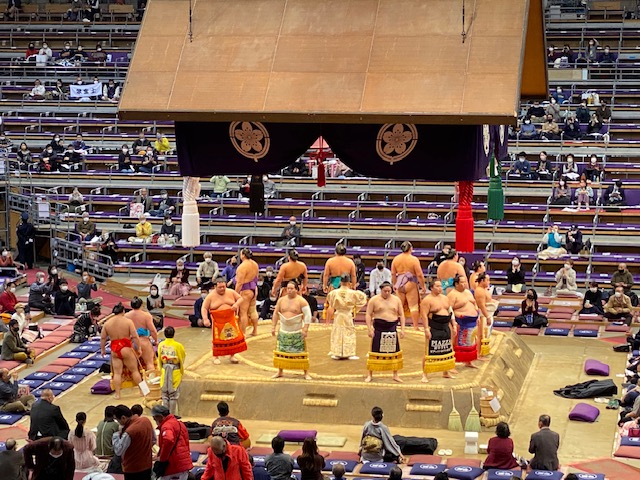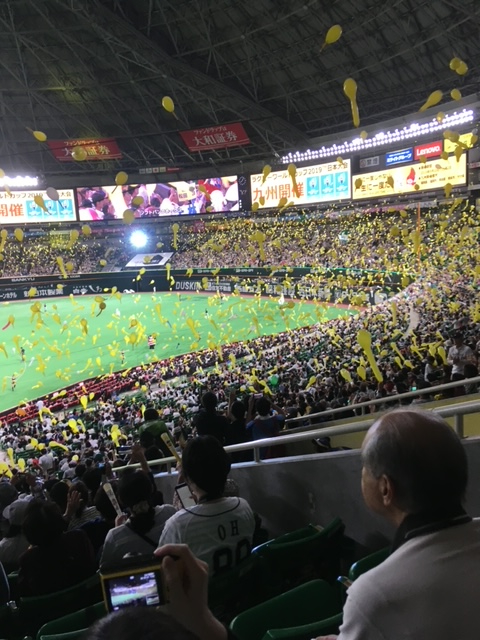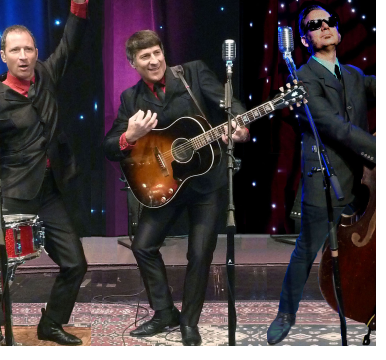A reader of this column asked if sports are popular in Japan. The answer is YES!
Japan is a very sports-friendly country that has developed culturally over the millennia and into modern times, including its traditional sports and more modern Western-imported sports.
Sumo can be regarded as Japan’s national sport, but baseball would come in at a close second due to its wide popularity in terms of spectators and television ratings. Not only does Japan boast many professional baseball teams, but also high school baseball tournaments are closely followed every year with people tuning in to watch them on TV and even attending as spectators to cheer on their favorite teams.
What makes Sumo so unique and special in Japan is that it is not only considered to be a traditional sport, but can also be categorized as a quasi-religious practice due to its elaborate and sacred rituals that are directly connected to Shinto beliefs and practices. In fact, during ancient times, it was believed that sumo matches were largely religious in nature divinely performed for the benefit of kami — Shinto gods.
Certain matches were even considered to foretell the future with regards to agricultural harvests and fishing catches for the community.
Every year, my prefecture — Fukuoka — hosts a grand sumo tournament called a “basho.” Ever since I moved to Fukuoka in 2010, I make it a point to attend at least one day a year which is always in November.
I absolutely love attending and cheering on my favorite wrestlers. It is such an exciting experience as fans get very animated and vocal in the cheering on of their favorite rikishi (sumo wrestler). Of course, hometown favorites receive the most cheers.
While each match lasts only a matter of seconds, it is so engaging and exciting as the two wrestlers battle each other to win. There are very strict rules concerning how the wrestlers can battle their opponents. For example, it is strictly prohibited for wrestlers to pull hair, poke eyes, hit with a closed fist (open hand slaps are OK), or to kick the other wrestler in the stomach or chest. The ultimate goal is to push the other wrestler out of the sacred ring or cause him to touch any part of his body to the ground other than the soles of his feet.

One common technique is for a wrestler to try to grab his opponent’s “mawashi,” which is the thick, elaborately-tied loincloth that they wear during a match. It is a huge advantage for a wrestler if he can grab and hold onto the other wrestler’s mawashi.
There are no weight divisions in sumo, so wrestlers try to get as chubby as they can. This is not to say they aren’t strong and solid under the blubber. Sumo wrestlers train constantly and have great strength in their toned muscles underneath all that flab. However, bigger isn’t always better … good balance is crucial during a match so wrestlers must learn how to carry their weight to use it to their advantage. Some smaller, more toned and muscular wrestlers have been very successful in sumo.
Japan is also world-renowned for its martial arts, with the most familiar ones for the majority of people around the world being judo and karate. Other martial arts’ traditions in Japan are Aikido (which literally is translated as “the way to harmony with ki”).
Kendo is quite popular in Japanese high schools and universities as club activities. This sport uses a bamboo sword as well as thick, protective clothing (like armor) to soften the blow of the opponent’s sword during a match. Kendo means “the way of the sword.”
Another traditional martial art in Japan is Jujutsu which means “soft skills” and its primary purpose is for self-defense without the use of weapons.
Judo is now an Olympic sport because it is so widespread around the world. Judo is translated as “the way of softness or gentleness” and is a type of competitive wrestling where the players’ jackets play an important role in the matches.
Karate is made up of a series of linear punching and kicking from stationary standing positions for self-defense. The word itself means “empty hand.” It is also an unarmed martial art that uses kicking, striking, and defensive blocking with one’s arms and legs. A Karate match begins and ends with the players exhibiting courtesy and respect to one another, emphasizing the act of moving forward, never backward, which is symbolic of the players pushing themselves to be better skilled in the martial art.
Kyudo is the martial art of archery and it means “the way of the bow.” It is a highly-skilled sport that demonstrates sophisticated, elegant, and elaborate shooting techniques.
Aikido, meaning “the way of harmonizing energy” is another traditional self-defense system that resembles vaguely Judo and jujitsu in its throwing techniques, with the intention of turning the opponent’s strength and momentum back against him/herself. It also focuses on positive mental development, in addition to thwarting physical attacks.
As mentioned earlier, Japanese baseball is hugely popular and even though it was imported to Japan, it has become its own tour de force.
Probably the most powerful Japanese team over the decades would have to be the Yomiuri Giants, which would be on par with the New York Yankees in the USA — the Giants being the Yankees of Japan, in other words.
MLB is known as NPB (Nippon Professional Baseball) in Japan, but more commonly called Puro Yakyu (Professional Baseball) by most people. There are only 12 teams in Japan compared to 30 MLB teams in the US. Japan divides its leagues into two — the Pacific league and Central League -- each with six teams.
For decades, U.S. players who couldn’t make it in MLB would go to Japan to play professional baseball, but today, many top Japanese players have gone to MLB teams.
Again, because I live in Fukuoka, I have the privilege of attending professional baseball games easily because our hometown team — the Softbank Hawks — consistently plays well, winning national championships.
Baseball games here are fun and exciting to attend and are wildly popular. Japanese people are loyal fans to their favorite teams, not too much unlike Americans who follow baseball regularly.
In addition to baseball, Japan has a very active and robust soccer league, as well as great interest in other Western sports like rugby, basketball, volleyball, golf, tennis, table tennis, and figure skating. Japanese athletes regularly perform well at world competitions and at the Olympics in a variety of sports that are revered around the world.
If you get to visit Japan, be sure to plan your trip around attending a sumo tournament or a professional baseball game. You won’t regret it!
Get the most recent Shelby County Post headlines delivered to your email. Go to shelbycountypost.com and click on the free daily email signup link at the top of the page.








